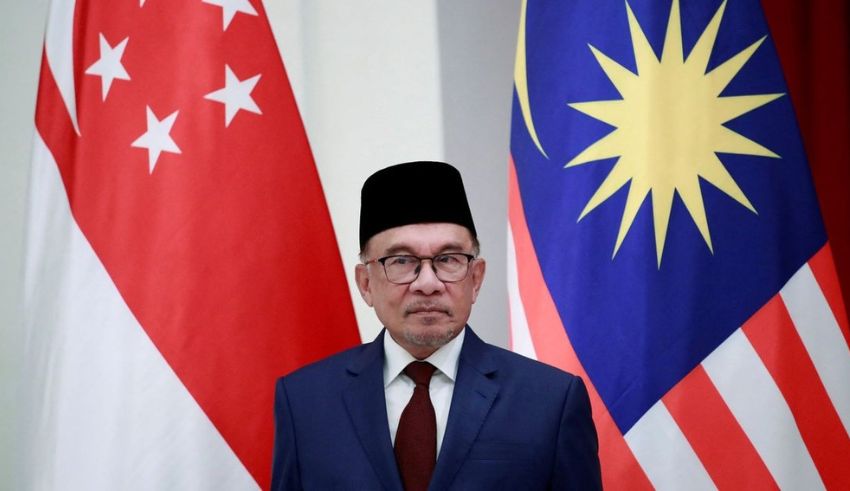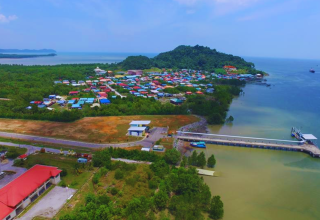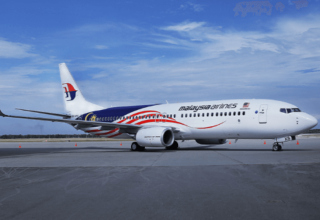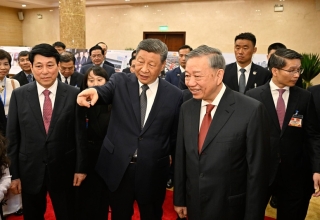
Malaysian Prime Minister Anwar Ibrahim announced a cabinet reshuffle on Tuesday, adding new ministers and deputy ministers to his administration. The reshuffle, which was widely anticipated, came after a year of leading the unity government that was formed following the 2022 general election.
Anwar said the reshuffle was aimed at enhancing the performance and delivery of the government, as well as strengthening the cooperation among the parties in the coalition. He also said the reshuffle took into account the feedback and suggestions from various stakeholders, including civil society, the media, and the public.
Among the notable changes in the reshuffle were:
- Datuk Seri Johari Abdul Ghani, a former second finance minister, was appointed as the new finance minister, replacing Anwar who held the portfolio since taking office. Anwar said Johari, who has extensive experience in both the public and private sectors, would be able to manage the country’s finances amid the challenges posed by the Covid-19 pandemic and the global economic slowdown.
- Datuk Seri Adly Zahari, the chief minister of Malacca, was appointed as the new domestic trade and cost of living minister, filling the vacancy left by the late Datuk Seri Salahuddin Ayub who passed away in July. Anwar said Adly, who is from Parti Amanah Negara, one of the parties in the coalition, would be able to address the issues of consumer protection, price control, and market regulation.
- Datuk Seri Saifuddin Abdullah, the former foreign minister, was moved to the human resources ministry, replacing Datuk Seri M. Saravanan who was dropped from the cabinet. Anwar said Saifuddin, who is from Anwar’s own party, Parti Keadilan Rakyat, would be tasked with improving the welfare and rights of the workers, especially in the wake of the pandemic that has affected many sectors and industries.
- Datuk Seri Hishammuddin Hussein, the former defence minister, was appointed as the new foreign minister, replacing Saifuddin. Anwar said Hishammuddin, who is from the United Malays National Organisation, the largest party in the opposition bloc, would be able to enhance Malaysia’s diplomatic relations and regional cooperation, especially in dealing with the South China Sea dispute and the Rohingya crisis.
- Datuk Seri Shamsul Iskandar Md Akin, the former deputy primary industries minister, was promoted to the natural resources, environment and climate change minister, replacing Datuk Seri Xavier Jayakumar who resigned from the cabinet in March. Anwar said Shamsul, who is also from Parti Keadilan Rakyat, would be responsible for managing the country’s natural resources and environmental issues, as well as implementing the policies and commitments on climate change.
Anwar also announced the appointment of 10 new deputy ministers, as well as the reshuffling of some existing deputy ministers to different portfolios. He said the new cabinet line-up would take effect immediately, and the swearing-in ceremony would be held at the Istana Negara on Wednesday.
Anwar expressed his gratitude and appreciation to the outgoing ministers and deputy ministers for their service and contribution to the government and the nation. He also urged the new cabinet members to work hard and diligently to fulfil their duties and responsibilities, as well as to uphold the principles of integrity, accountability, and transparency.
He said the cabinet reshuffle was part of his ongoing efforts to reform and improve the governance system in the country, and to restore the public trust and confidence in the government. He said he hoped the cabinet reshuffle would enable the government to better serve the people and address the challenges and problems faced by the nation.
The cabinet reshuffle was Anwar’s first major move since he became the prime minister in December 2022, after securing the support of 125 out of 222 members of parliament. He formed a unity government that comprised parties from both the ruling and opposition coalitions, as well as independent lawmakers, in order to end the political impasse and instability that had plagued the country since the 2018 general election.
Keep Reading
The unity government, which was initially supposed to last for one year, was later extended until the next general election, which is due by 2025. Anwar said the extension was necessary to ensure the continuity and stability of the government, as well as to focus on the recovery and development of the country amid the pandemic.
The cabinet reshuffle came amid the rising popularity and approval ratings of Anwar and his government, according to several surveys and polls conducted by various agencies and institutions. The surveys and polls showed that the majority of the people were satisfied and supportive of Anwar’s leadership and performance, as well as the government’s policies and initiatives, especially in handling the Covid-19 situation and the economic recovery.
The cabinet reshuffle also came amid the speculation and rumors of a possible snap election, as some parties and politicians were reportedly unhappy and dissatisfied with the unity government arrangement and the power-sharing formula. Anwar, however, dismissed the speculation and rumors, saying that he had no intention or plan to call for an early election, and that he would honor the agreement and consensus among the parties in the coalition.
He said he was confident and optimistic that the unity government would be able to survive and sustain until the end of its term, and that he had the full support and cooperation of all the parties and leaders in the coalition. He said he was also open and willing to engage and consult with the opposition parties and leaders, as well as other stakeholders, on matters of national interest and importance.
He said he believed that the unity government was the best and most viable option for the country at the moment, as it represented the diversity and plurality of Malaysian society, and reflected the spirit and aspiration of the Malaysian people. He said he hoped that the unity government would be able to bring about positive and meaningful changes and transformations to the country, and to create a better and brighter future for all Malaysians.



























